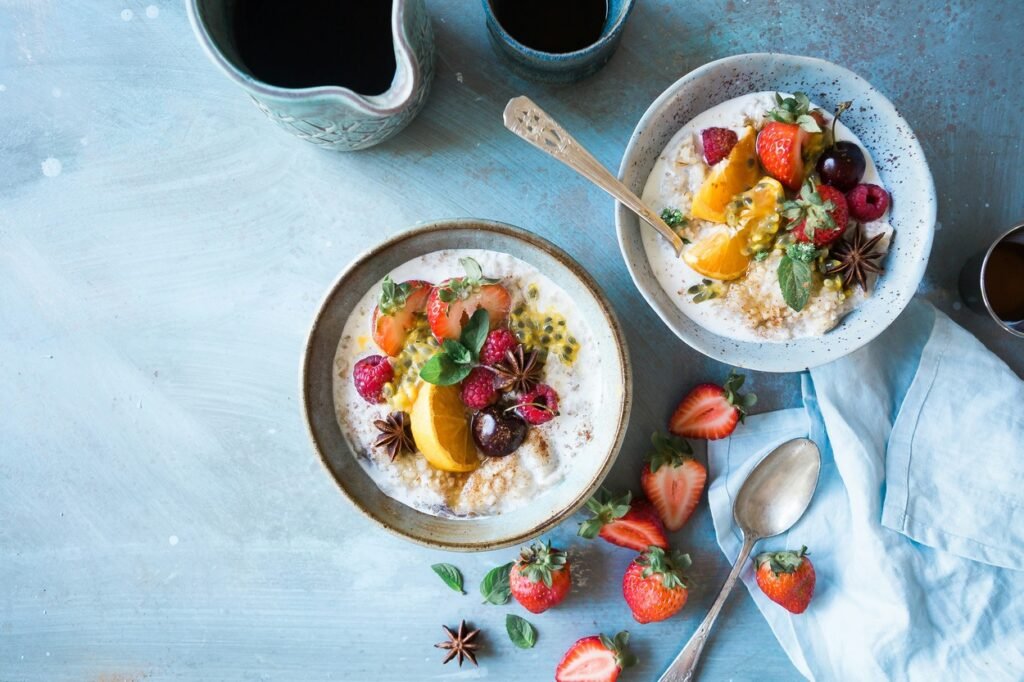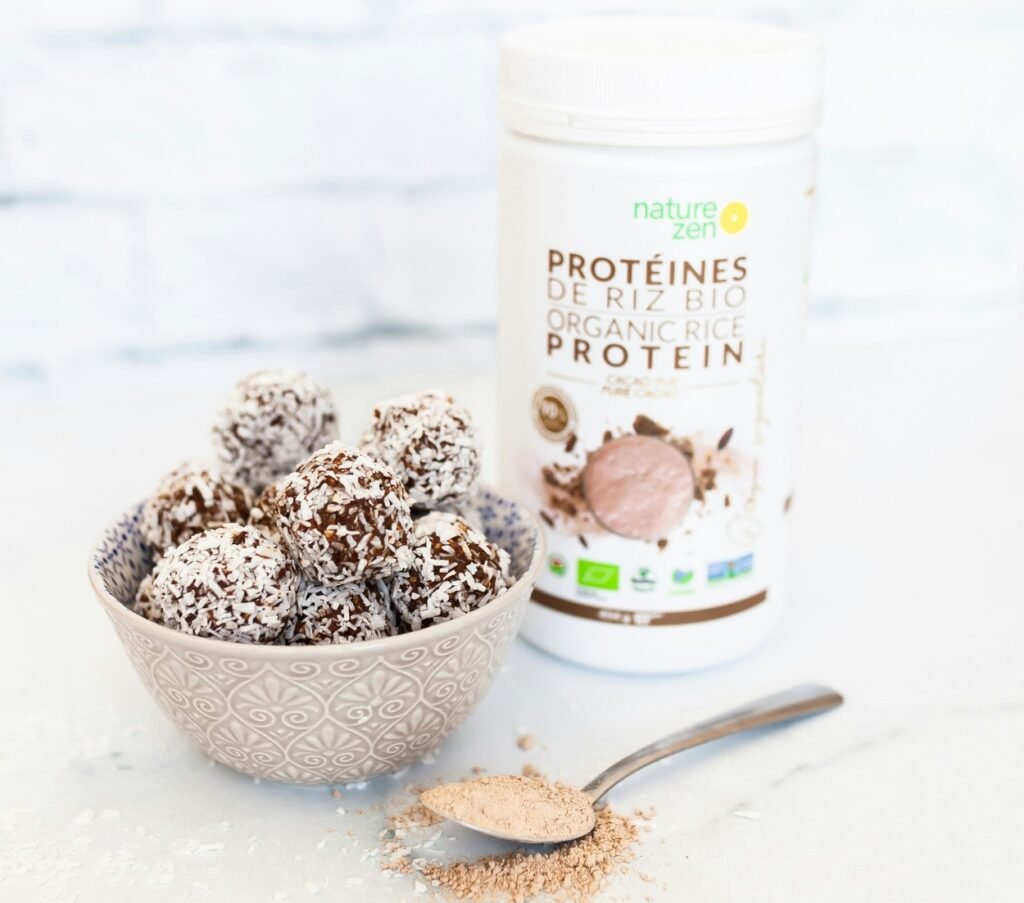Parenting is a whirlwind of decisions, from choosing the right diapers to deciphering toddler tantrums, and one of the questions that might sneak up on you is: “Can my toddler have protein powder?” It seems like a simple enough query, but as with many things in the world of raising tiny humans, the answer is layered.
Grab a cup of coffee (or maybe a protein shake?), and let’s dive into this topic with a sprinkle of humor, a dash of personal experience, and a hearty serving of practical advice.
The Great Protein Panic
As parents, we’re constantly bombarded with information—much of it contradictory—about what’s best for our kids. One day you’re reading that quinoa is the superfood of the century, and the next, someone’s telling you that kale is the enemy. When it comes to protein, the waters are especially murky. You hear about the benefits of high-protein diets, see athletes downing shakes like they’re liquid gold, and might start wondering if your pint-sized powerhouse could benefit from a scoop of the good stuff.
I remember the first time I considered protein powder for my kids. My six-year-old was in the middle of a growth spurt, seemingly eating his weight in chicken nuggets every day, and my five-year-old daughter had just discovered gymnastics, flipping around like a tiny Simone Biles. Their energy was off the charts, and I found myself pondering if a little extra protein might help fuel their boundless enthusiasm (and maybe, just maybe, wear them out enough to sleep past 6 AM).
But before you start sprinkling whey into your toddler’s applesauce, there are a few things to consider.

Do Toddlers Need Protein Powder?
Let’s start with the basics. Protein is essential for growth and development, helping to build muscles, repair tissues, and support the immune system. Toddlers need about 13 grams of protein per day, which might sound like a lot but is surprisingly easy to meet through a balanced diet.
Consider some typical toddler-friendly foods:
- A cup of milk: 8 grams of protein
- An ounce of cheese: 7 grams
- An egg: 6 grams
- Peanut butter: 8 grams per 2 tablespoons
In just one or two meals, your little one is likely getting all the protein they need, with no need for fancy powders or supplements.
The Risks of Protein Powder for Toddlers
Here’s where things get dicey. While protein powder can be beneficial for adults or older kids who might need an extra boost—think athletes, or those with specific dietary restrictions—toddlers are a whole different ballgame.
- Kidneys Under Pressure: Toddlers’ kidneys are still developing, and an overload of protein can strain these tiny organs. While adults can handle the extra load, too much protein for a toddler can lead to dehydration or other kidney issues.
- Nutrient Displacement: Toddlers have tiny tummies, and they need to fill those tummies with nutrient-dense foods. If you’re adding protein powder to their diet, you might unintentionally be displacing other essential nutrients like fiber, vitamins, and minerals. A balanced diet is key, and focusing too much on protein can throw that balance off.
- Artificial Additives: Many protein powders are packed with artificial sweeteners, flavors, and other additives that you might not want anywhere near your little one. Even if the label says “natural,” it’s worth taking a closer look at what’s actually inside.
- Unregulated Industry: Unlike medications, supplements like protein powders aren’t strictly regulated by the FDA. That means you might not always know what you’re getting, and there could be inconsistencies between what’s on the label and what’s in the powder. Yikes.
When Might Protein Powder Be Appropriate?
Okay, so I’ve scared you off protein powder for toddlers. But are there situations where it might be appropriate? In general, whole foods should be your first choice, but there are some specific cases where you might consider it:
- Picky Eaters: If your toddler is a particularly fussy eater and isn’t getting enough protein from their regular diet, you might want to consult with a pediatrician about supplementing. However, it’s essential to approach this carefully, ensuring that you’re not just masking a bigger issue with a quick fix.
- Medical Conditions: In some cases, toddlers with specific medical conditions that affect their ability to eat or absorb nutrients might benefit from protein supplementation. Again, this is something that should only be done under the guidance of a healthcare professional.
- Temporary Boost: If your toddler is going through a particularly intense phase of physical activity—like if they’ve suddenly decided to become a toddler triathlete—you might consider a temporary boost, but this should be the exception, not the regulation.

Alternatives to Protein Powder
If you’re still concerned about your toddler’s protein intake but want to avoid the potential pitfalls of protein powder, there are plenty of natural, kid-friendly ways to up their protein game:
- Greek Yogurt: Packed with protein and probiotics, Greek yogurt is a delicious and nutritious option. Mix it with some fruit for a toddler-approved snack.
- Smoothies: Blend up some fruits, veggies, and a bit of milk or yogurt for a protein-rich smoothie. You can even sneak in some spinach or kale—chances are, they won’t even notice.
- Hummus: A fun, dippable snack that pairs well with veggies or whole-grain crackers, hummus is a great source of protein and fiber.
- Cottage Cheese: This might be hit or miss with the toddler crowd, but if they like it, cottage cheese is another excellent source of protein.
The Personal Perspective: What I Learned
As I considered the protein powder question, I realized that, like many parenting decisions, there’s no one-size-fits-all answer. After doing some research, consulting with our pediatrician, and thinking about our family’s dietary habits, I decided against protein powder for my kids. Instead, I focused on making sure they were getting a variety of whole foods that would naturally meet their protein needs.
There were a few close calls—like the time I nearly caved after my daughter’s gymnastics coach mentioned she might need more protein to keep up with her new routines. But then I remembered that she was already devouring scrambled eggs like they were candy, and I put the protein powder back on the shelf.
Parenting is all about balance, and that includes the way we approach nutrition. While it’s easy to get caught up in the latest trends and fads, sometimes the best answer is the simplest one. In our case, sticking to whole foods and keeping an eye on the bigger picture—ensuring our kids are healthy, happy, and full of energy—was the way to go.

Final Thoughts: To Powder or Not to Powder?
So, can a toddler have protein powder? Technically, yes, but it’s not usually necessary and comes with some risks. Unless there’s a specific, medically advised reason to do so, you’re better off sticking with whole foods and making sure your little one’s diet is as balanced as possible.
Remember, the goal isn’t just to fill your toddler up but to fuel their growth, development, and boundless curiosity. So, next time you find yourself eyeing that tub of protein powder, take a deep breath, and reach for a handful of almonds—or better yet, a slice of cheese—for yourself instead. After all, you’re going to need the energy to keep up with those tiny whirlwinds!
